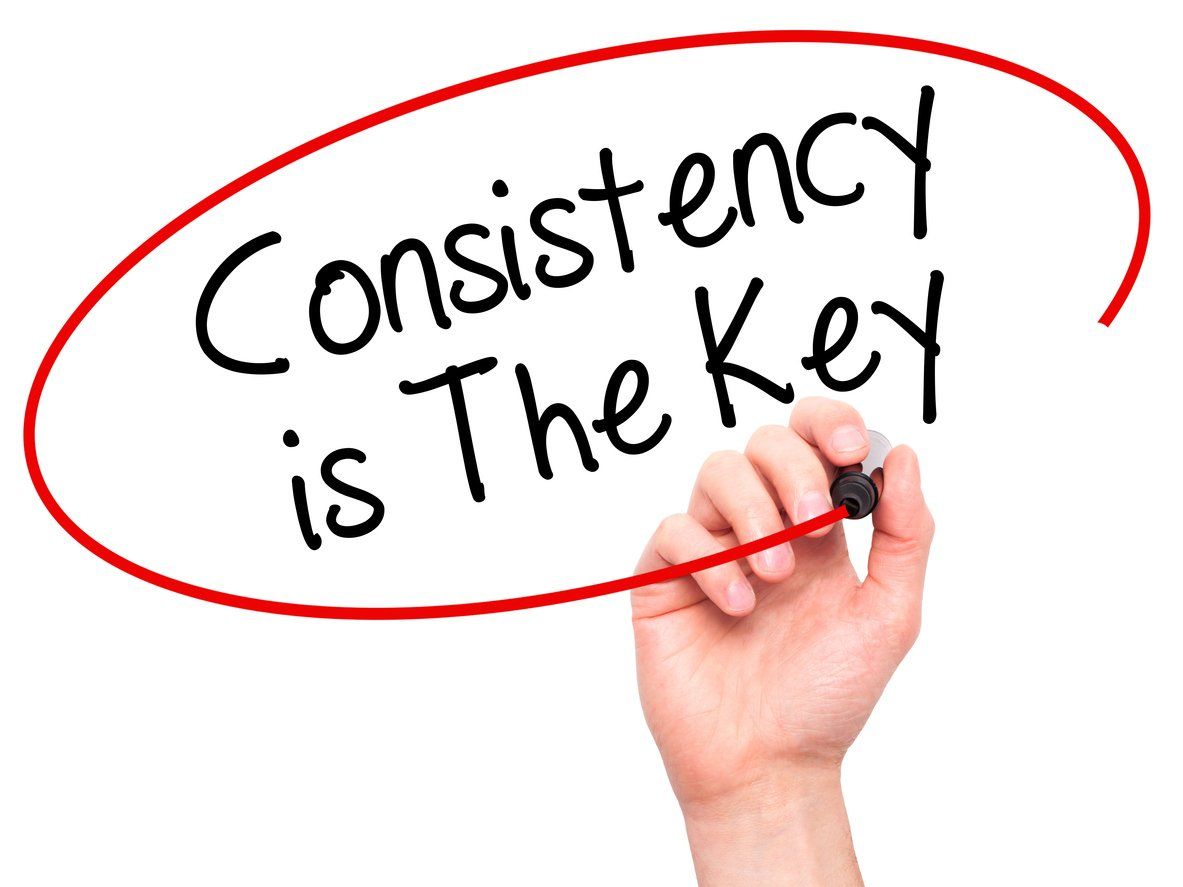Consistency Magnifies Trust

“It’s the little things – done consistently – that make the biggest difference,” says David Horsager. “If I am overweight, it is because I have eaten too many calories over time, not because I ate too much yesterday. It is the same in business. The little things done consistently make for a higher level of trust and better results.”
Consistency is the critical driver for success. Being consistent means dedicating yourself to your goals and staying focused on the things and activities needed to achieve your goals. Consistency requires a long-term commitment from you and involves sustained effort in doing actions repeatedly until you achieve your goals.
Discipline, accountability, and responsibility are all parts of staying consistent. Why is it so difficult to stay focused, to be disciplined, to hold ourselves accountable, and to exercise personal responsibility?
One of the reasons is that the world around us and technology provide so many distractions that people don’t stay focused on their priorities. Another is that most people don’t have a focus because they haven’t been intentional about deciding what they want to do in life, what they want to accomplish.
Let’s look at a few aspects of being consistent.
- Set Clear Goals – Determine the priorities in your life and define them in measurable ways. For example, if one of your priorities is to be a high performer at a job you love, you may set a goal for sales, client retention, average customer satisfaction, and/or your performance feedback rating.
- Create a Plan to Achieve Your Goals – Write down all the things you need to do to achieve each goal. How much time will each take? How frequently do they have to be done? When will you do each of them. Create a schedule for each day, week, or month and enter all of the things you need to do to achieve success.
- Follow Your Plan – Now is the time to demonstrate consistency. Live in the present. Every day, week, and month, do the things on your schedule. Discipline yourself to follow the plan. Find an accountability partner who will check in with regularly to acknowledge your progress or get you back on track. Take responsibility when you fall behind due to your lack of follow-through.
- Review and Adjust – Evaluate the progress you are making towards your goal. If you haven’t been following it, what do you need to do to increase your consistency. If you are regularly implementing your plan but not making enough progress, what changes could improve your results? Revise your plan and consistently follow the new plan. If you discover your goal is unrealistic, revise the goal and modify your plan.
When people see that you are clear on your priorities and consistently working towards achieving your goals, they will see you as trustworthy. Your track record of trust will be built over time; there is no other way to lasting success. Deliver the same quality of results every time and you will maintain trust.

